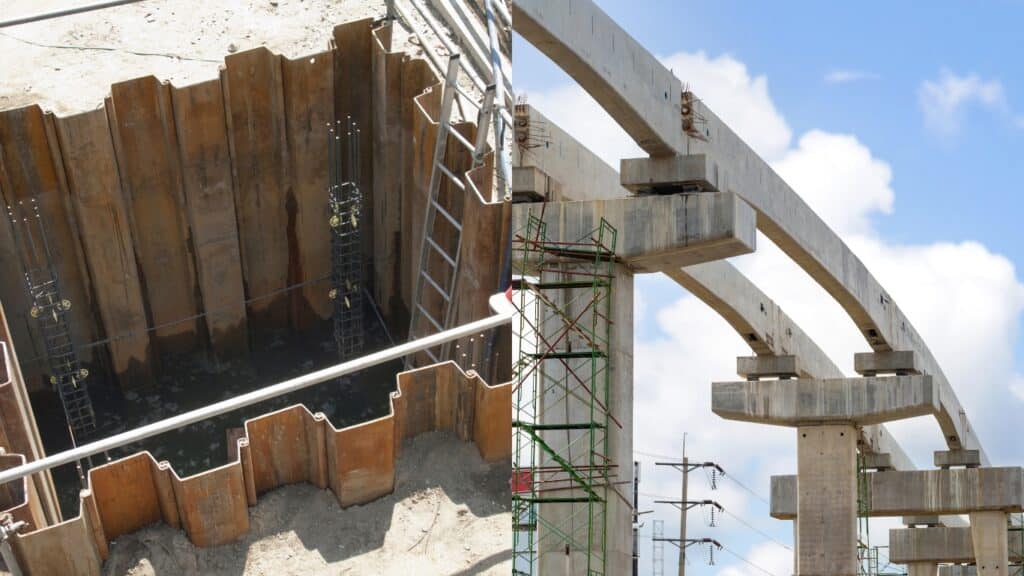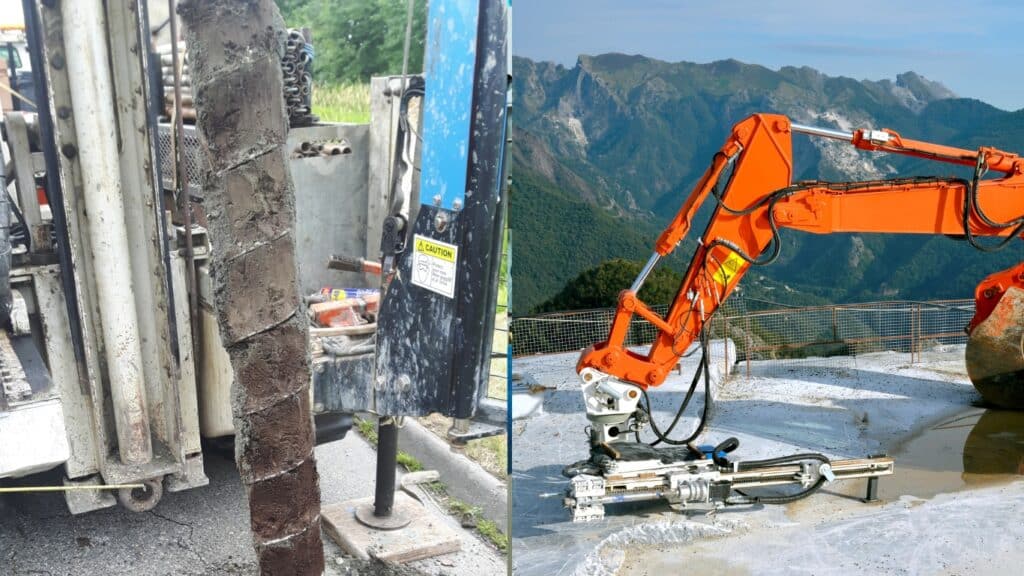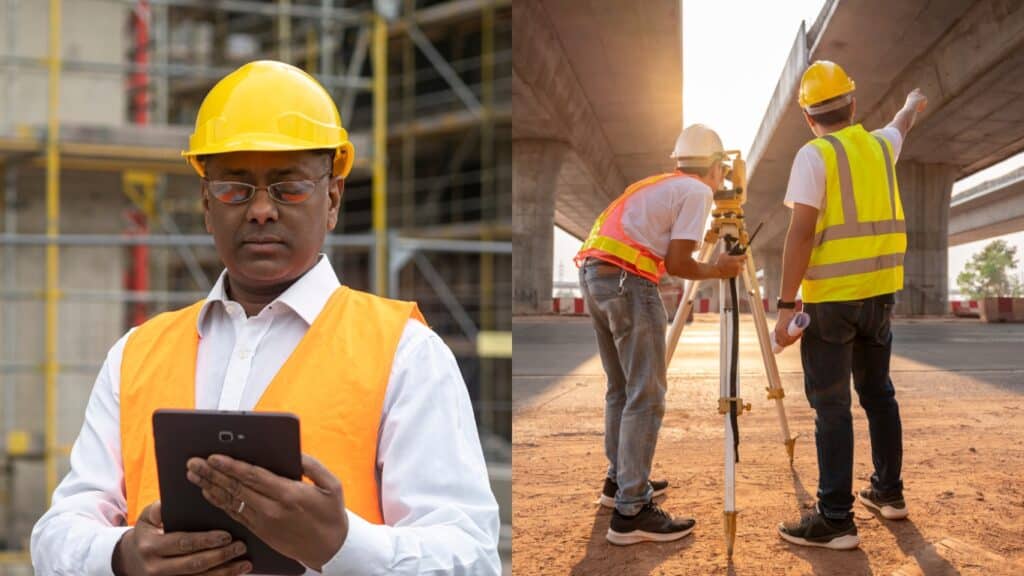Civil Engineering – 12 Field Engineering Opportunities in Civil Engineering
What are the field engineering opportunities available in civil engineering?
Civil engineering is a discipline focused on the design, construction, and maintenance of the physical and naturally built environment, encompassing infrastructure like roads, bridges, buildings, and water systems. In the civil engineering industry, there are several field engineering opportunities across different roles. Field engineering in civil engineering involves hands-on roles that focus on managing construction sites, ensuring project quality, and overseeing the installation of infrastructure.
What are my Field Engineering Opportunities in Civil Engineering
Here are twelve field engineering opportunities within civil engineering
- Construction Engineers and Construction Field Engineers
- Site Engineers
- Structural Engineers
- Geotechnical Engineers
- Surveyors and Building Control Surveyors
- Quality Control Engineers
- Environmental Engineers
- Project Engineers
- Transportation Engineers
- Water Resources Engineers
- Field Mechanical and Electrical (M&E) Engineers
- Field Safety Engineers
1. Construction Engineers and Construction Field Engineers

Construction Engineers and Construction Field Engineers oversee the construction of civil engineering projects such as buildings, roads, bridges, and infrastructure. Ensure that the work complies with design specifications, quality standards, safety regulations, and budgets.
Key Tasks
Supervise contractors and subcontractors.
Manage site operations, materials, and equipment.
Monitor project timelines and progress.
Resolve on-site issues.
2. Site Engineers
Site Engineers are responsible for managing day-to-day activities on construction sites. Site engineers ensure that construction is carried out according to the design, plans, and specifications.
Key Tasks
Coordinate with project managers, architects, and contractors.
Conduct inspections and quality control checks.
Manage resources (labour, materials).
Ensure adherence to safety standards.
3. Structural Engineers
Structural Engineers specialise in analysing and designing structural systems while also conducting on-site inspections to ensure construction follows approved plans and maintains structural integrity.
Key Tasks
Conduct field inspections of structures like bridges, dams, and buildings.
Perform load and stress tests.
Monitor construction for structural integrity.
Address on-site issues relating to structural performance.
4. Geotechnical Engineers

Geotechnical Engineers focus on the soil and ground conditions of construction sites to ensure they can support the proposed structures.
Key Tasks
Conduct soil tests and analyse geotechnical data.
Evaluate foundation requirements based on ground conditions.
Provide recommendations on soil stabilization techniques.
Supervise earthworks, drilling, and excavation activities.
5. Surveyors and Building Control Surveyors

Surveyors and Building Control Surveyors work closely with the civil engineering design team to measure and map construction sites before and during construction.
Key Tasks
Conduct land surveys to collect data on land elevation, contours, and existing structures.
Set out reference points and boundaries for the construction project.
Prepare site plans and maps.
Ensure that designs are implemented accurately on the ground.
6. Quality Control Engineers
Quality Control Engineers ensure that all construction materials and practices meet the required quality standards.
Key Tasks
Inspect and test construction materials (e.g., concrete, steel).
Perform quality checks during construction.
Ensure compliance with safety regulations and quality standards.
Maintain detailed records of inspections and tests.
7. Environmental Engineers
Environmental Engineers focus on environmental impact during construction projects and ensures compliance with environmental laws and sustainability practices.
Key Tasks
Monitor waste disposal, water quality, and air pollution on construction sites.
Implement erosion control and waste management strategies.
Ensure compliance with environmental regulations.
Conduct environmental assessments and audits.
8. Project Engineers
Project Engineers manage a specific aspect of a larger civil engineering project and ensures coordination between design, procurement, construction, and commissioning stages.
Key Tasks
Oversee project implementation from the field level.
Manage budgets, schedules, and resource allocation.
Coordinate with contractors and suppliers.
Troubleshoot and solve on-site problems.
9. Transportation Engineers
Transportation Engineers specialise in the design, construction, and maintenance of transportation infrastructure, such as highways, railways, airports, and ports.
Key Tasks
Monitor construction of transportation projects.
Conduct traffic analysis and ensure proper road safety features.
Design and oversee road paving, bridge construction, and drainage systems.
10. Water Resources Engineers
Water Resources Engineers work on projects related to water supply, sewage treatment, flood control, and water distribution systems.
Key Tasks
Oversee the construction and maintenance of water treatment plants, dams, and pipelines.
Ensure efficient use of water resources.
Implement flood control measures and drainage systems.
Monitor construction of wastewater treatment facilities.
11. Field Mechanical and Electrical (M&E ) Engineers

Field Mechanical and Electrical (M&E) Engineers are responsible for overseeing the installation and maintenance of mechanical and electrical systems in construction projects, particularly for large facilities.
Key Tasks
Supervise the installation of HVAC, electrical wiring, and plumbing.
Ensure mechanical and electrical systems meet the design specifications.
Perform testing and commissioning of systems.
Troubleshoot and resolve on-site issues related to M&E systems.
12. Field Safety Engineers
Field Safety Engineers ensure that construction sites comply with safety regulations to prevent accidents and injuries.
Key Tasks
Conduct safety audits and inspections
Develop and implement safety protocols.
Train workers on safety procedures.
Investigate accidents and recommend corrective actions.

Conclusion
These roles offer hands-on opportunities to work on-site, solving real-time engineering problems, overseeing construction progress, and ensuring project success from the field perspective. These positions are suitable for those who enjoy dynamic, on-the-groundwork with a strong focus on technical problem-solving and collaboration with other engineering professionals.
Further reading
Field Engineering Opportunities in the Semiconductor Industry
Natalie Aixill, Technical Services Engineer, Resero UK

